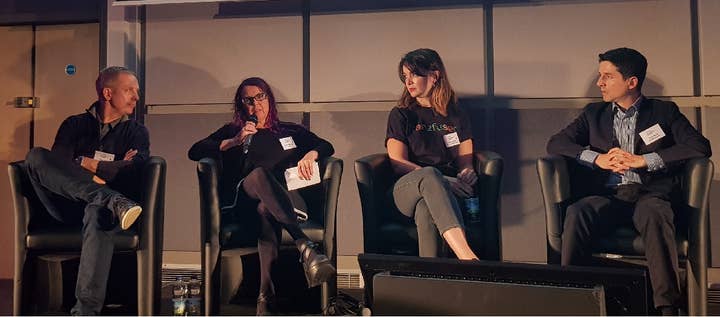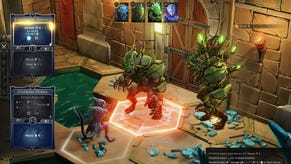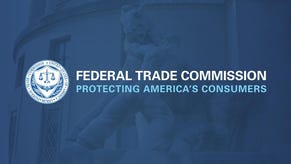"Be careful what you wish for" when after a publisher, says Team17 CEO
GamesIndustry.biz Investment Summit panel discusses opportunities and pitfalls when looking for a publisher
"Be careful what you wish for" was the advice Team17 CEO Debbie Bestwick offered developers seeking funding from publishers or investors.
Speaking at the GamesIndustry.biz Investment Summit today during EGX, Bestwick provided insight on what she looks for when investing, and the pitfalls to avoid as a developer.
Since returning to third-party publishing in 2013, Team17 has signed deals with Mouldy Toof Studios, Ghost Town Games, Villa Gorilla, and Playtonic Games, cementing itself at the forefront of the British games industry.
"I think be very clear in terms of what you're wanting funding for," advised Bestwick. "This is the thing I still struggle with some [developers] when they come towards us....
"There is a tendency, certainly in the indie space, where they do get little bit confused between game funding [and] studio funding. They are very different. Treat them as two different areas. I would say be very, very clear."

Knowing what you're after is key, but Bestwick stressed that it's also important to know what you're willing to give up.
"I never went into a games pitch with a publisher without being absolutely certain what my plan A, B and C was," she said of her days on the developer side of the table.
Speaking again from the perspective of a publisher, she added: "Know exactly what you want, but also make sure that if you are a very small team, that your entire team is aligned with your vision and your strategy.
"When somebody is investing in you, I would say nothing is more important than the game... But please know that people are investing in you as the team and the people and the vision that you're selling."
She compounded this point by later adding: "If there's not passion, we'll walk away immediately. There has to be passion behind the project."
Sustainability and the long-term prospects of a game, combined with Team17's role as a publisher, also featured in any equation regarding a deal.
"If there's not passion, we'll walk away immediately. There has to be passion behind the project"
Debbie Bestwick, Team17
"It's about building franchises, but part of our label is about sustainability and helping our partners," she said. "Sustainable business is all about IP ownership, and how you build value in your IP.
"We have quite a thorough greenlight process... Part of that process is looking at every single project and what the lifecycle is.
"Is there a game two in there? A game three in there? And looking at how we can help build long-term franchises to help our partners is very fundamental at the very start when we look at every single project."
Also encouraging developers to consider more than just the short-term was Alan Moss from Harbottle and Lewis LLP.
Chinese companies, and Tencent in particular, are driving huge amounts of investment in the industry right now. However, Moss noted that while these deals often look appealing, there can be some awkward strings attached.
While a publishing deal offering a material sum of money might seem appealing, Moss warned against exchanging it for a minority stake in the business, stressing that it can preclude other investors later down the line.
"Often the amount of investment being offered can be very attractive, it can be a real material sum of money," he said.
"Often you're giving away maybe ten per cent or maybe 20 per cent of the company, which may not seem that much, but... contemplating a potential sale in the future, may make it more difficult having an investor.
"This doesn't just apply to the investor from China, but it may make it more difficult if they have a right of first refusal if you ever want to sell them the business, or generally because they are minority shareholder, they will have certain rights."
With Team17 having been independent for most of its history, it was a sentiment that Bestwick echoed: "We never did a minority deal with any games publisher or industry partner for a reason; it restricts opportunities potentially for the long-term view...
"Other publishers, other opportunities will come, and you need to be aware of potentially locking yourself in at a very early stage... Really do your due diligence."








